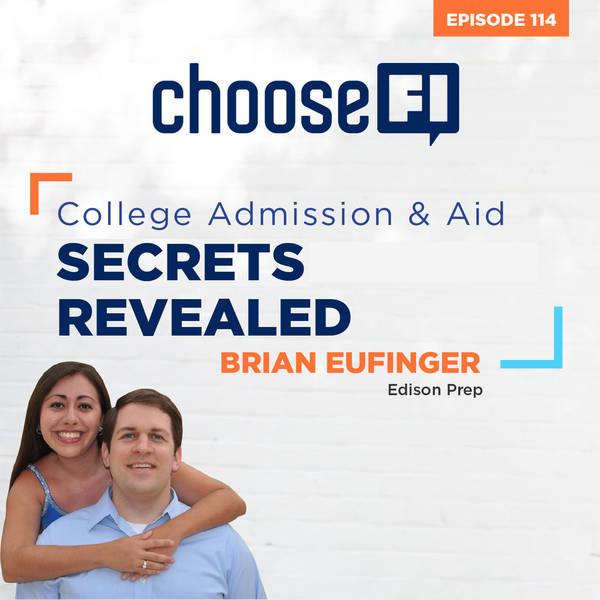
114 | Demystify College Admission & Aid | Brian Eufinger | Edison Prep
114 | Brian Eufinger, co-founder of Edison Prep, dives deep into the college admissions process and explains how a student should approach grades and test scores to give themselves the best college options, and how to pay for college without collecting a huge student loan debt.
Most merit aid that students earn comes directly from the university. Brian attended Washington University in St. Louis, earning about 2/3 merit scholarship and pieced together other scholarships and on-campus jobs to pay for his education. Many states or schools give merit scholarships for students who earn high test scores and high grades. Brian is surprised by the vast differences in aid packages among schools with similar academic profiles. Many schools will offer a few high school classes in the 8th grade year. Brian’s advice for helping students get into the best college and find the best merit aid is to sign up for challenging classes, starting in middle school if you can, earn the highest GPA possible, and find a few extracurricular activities you are passionate about. A super high SAT score will not offset a bad GPA; you can repeat a test, but not a class from 9th grade. The Common Application has made it more difficult for universities to evaluate an overwhelming number of applications, which is why a students’ numbers are so important when admissions officers are making initial evaluations. Grade inflation makes it difficult to understand GPAs; your student just needs to stand out among their school peers. Earning a “C” in their junior years is one of the bigger mistakes a student can make. The No. 1 academic risk for high school students is over committing to extracurricular activities, including sports, when they should be focusing on academics. Division I schools are able to give out athletic scholarships, while Division 3 schools typically don’t offer athletic aid. However, there are still options for earning scholarships at Division 3 schools for student-athletes. Merit aid is based on evaluation of your grades, test scores, application, etc. Need-based financial aid is based on perceived financial need. Students don't need 1,000 hours to study for SAT/ACT tests; if they treated tests like a sport for one season, they would have all the hours they need. The perfect time to start studying is after sophomore year, before junior year is complete. Sophomores should make sure to take a full-length practice test, created by the actual test makers, to determine whether they’ll be more successful on the ACT or SAT. It’s better to focus on one test than to try to be good at two. Practice is crucial. The best calculator for these tests is the TI-84 Plus CE, followed by a TI-84 and TI-83. It’s best to find a local tutoring company, with a small number of employees, that hires full-time professional tutors.
For more information, visit the show notes at https://www.choosefi.com/114
